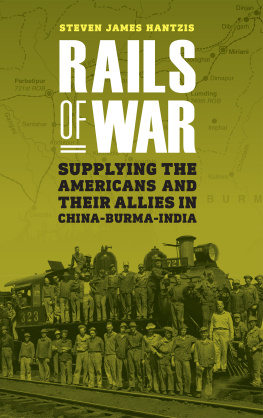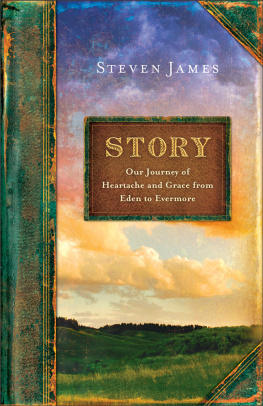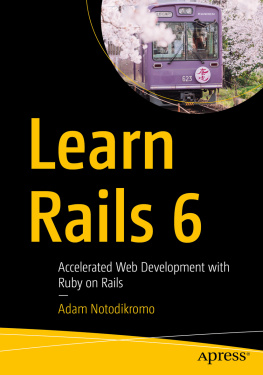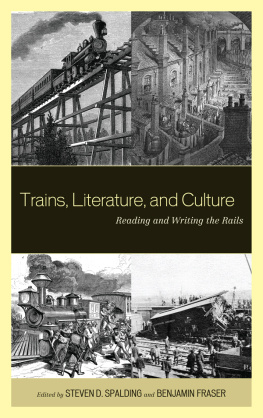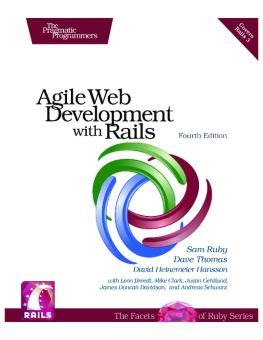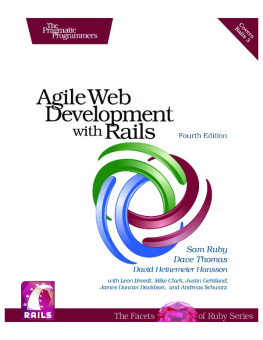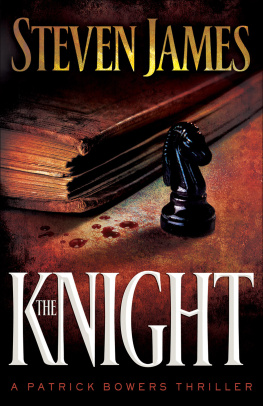Steven James Hantzis - Rails of War
Here you can read online Steven James Hantzis - Rails of War full text of the book (entire story) in english for free. Download pdf and epub, get meaning, cover and reviews about this ebook. year: 2017, publisher: University of Nebraska Press, genre: Politics. Description of the work, (preface) as well as reviews are available. Best literature library LitArk.com created for fans of good reading and offers a wide selection of genres:
Romance novel
Science fiction
Adventure
Detective
Science
History
Home and family
Prose
Art
Politics
Computer
Non-fiction
Religion
Business
Children
Humor
Choose a favorite category and find really read worthwhile books. Enjoy immersion in the world of imagination, feel the emotions of the characters or learn something new for yourself, make an fascinating discovery.
- Book:Rails of War
- Author:
- Publisher:University of Nebraska Press
- Genre:
- Year:2017
- Rating:5 / 5
- Favourites:Add to favourites
- Your mark:
- 100
- 1
- 2
- 3
- 4
- 5
Rails of War: summary, description and annotation
We offer to read an annotation, description, summary or preface (depends on what the author of the book "Rails of War" wrote himself). If you haven't found the necessary information about the book — write in the comments, we will try to find it.
Rails of War — read online for free the complete book (whole text) full work
Below is the text of the book, divided by pages. System saving the place of the last page read, allows you to conveniently read the book "Rails of War" online for free, without having to search again every time where you left off. Put a bookmark, and you can go to the page where you finished reading at any time.
Font size:
Interval:
Bookmark:
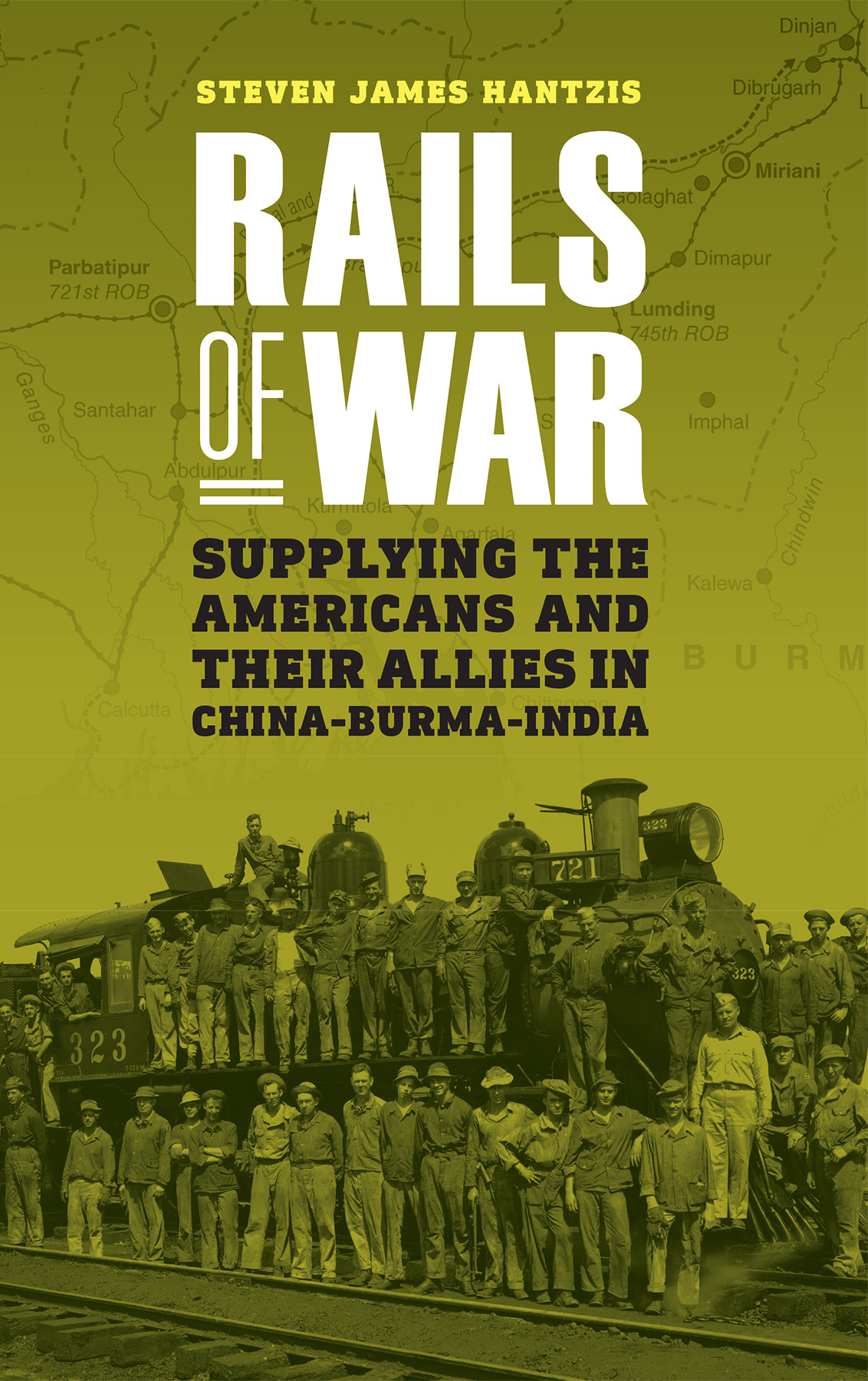
An incredible look at the monumental task of these logistics superheroes.... These unsung members of our Greatest Generation worked miracles, and Steve Hantzis does a wonderful job capturing the danger, the difficulty, and the rewards in a very personal way. As a commander of our Flying Tigers in Desert Storm, I especially enjoyed the parallels between the logistics of World War II and Desert Storm.
Gen. Gene Renuart, USAF (Ret.)
Steven James Hantzis
Potomac Books
An imprint of the University of Nebraska Press
2017 by Steven James Hantzis
Cover designed by University of Nebraska Press; cover image courtesy of the author.
Author photo courtesy of Vincent Guerrieri.
All rights reserved. Potomac Books is an imprint of the University of Nebraska Press.
Library of Congress Control Number: 2016046799
The publisher does not have any control over and does not assume any responsibility for author or third-party websites or their content.
Maps
Photographs
This book is a personal exploration of the unsung China-Burma-India theater of World War II. My father, James Harry Hantzis, left behind a cardboard box of military keepsakes, a Madonna-and-child cameo ring that my wife now wears, and a captivating photo scrapbook entitled India. And he left behind father-and-son stories.
I guess its natural for little boys to be fascinated with the military and to act out battles with fabricated weapons and imaginary consequences. At least it was normal where I grew up. A boys imagination could be stimulated into militaristic overdrive with television shows like The Big Picture and Hollywood movies like The Bridge on the River Kwai and To Hell and Back, as was mine. I was lucky to have a younger brother I could enlist as a comrade or target as an enemy, depending on how our imaginations percolated on any given day. We attacked strongholds, propelled lethal objects at enemy positions, and built forts in our barns haymow complete with booby traps and secret passages. It was good, clean fun. We were boys just trying to be like the men of my fathers generation.
Ive used the real names of men who served, men I felt I knew well enough to attempt to write in their voices, but their words are mine. There are no recordings of their conversations, so with the details I had at hand I took authorial license and wrote the dialogue. The stories and situations, the vignettes, are real.
From each monochrome kernel of truth I have attempted to grow colorful, dense flora to appeal to the minds eye. But my humble apology must now be offered in advance. After working on the railroad for twelve years, then in the American labor movement for thirty, and after befriending the good men who served in the 721st Railway Operating Battalion and hearing their accounts firsthand, I confess with assurance that even my most imaginative and crafty passages, those snippets where I manage to conjure vivid flashes and move along the narrative, are most certainly pale and poky compared to what really happened.
The story begins this way: In the generation before mine there were men of substance and courage, wisdom and wile who moved the weight of war on ribbons of steel. At this, the work of their lives, they were better than anyone, anywhere.
A stone inscribed with the words China-Burma-India rests at the southern end of the National World War II Memorial on the National Mall in Washington DC , just a few miles from my home in Alexandria, Virginia. The marker is one in a constellation of stones presided over by the vaulted arch of the Pacific Pavilion rising to commemorate one of two great theaters in the global mle. Many believe the stone is not grand enough to evoke all that China-Burma-India meant to the war effort. The stone symbolizes a subaltern war often declared the forgotten theater by historians as well as the men who served. Im thankful that not everyone has forgotten.
My father, James Harry Hantzis, inspired this book and provided not only stories but also a collection of black-and-white photographs titled simply India. His life was an unconscious example of the character of his generation and a model that I will forever strive to fulfill. He is long gone. But some of the men with whom he served in the 721st Railway Operating Battalion are still alive. Until just a few years ago they held a reunion every September in upstate New York. There, in 2002, I met Don Blair, E. O. Woods, George Lee, William Butler, Charles Graham, Lyle Sanderson, William Walsh, and Herb Witt. All of these men contributed not just stories and inspiration but artifacts and photographs, especially the engaging motorman E. O. Woods, president of the Reunion Committee.
But I never would have met these fine men and many others had it not been for the sparkplug of the battalion, the locomotive fireman Rocky Agrusti. Rocky is that rare, honor-bound individual who unabashedly holds dear his service to his country and that of his family as well as all who wore the uniform. Rocky kindly introduced me to his extensive network of friends and comrades and provided a personal tour of his museum, a capacious collection of military items housed in a former sawmill on his lovely property in New York.
Rockys late-evening phone calls always served as a motivator when my writing seemed to lag. My wife, Kathleen, and I were honored to accompany him to the final roundup of the national CBI World War II Veterans Association on the sixtieth anniversary of the end of the war. Rockys lively cohort of seven hundred veterans, their spouses and families, were an inspiration. Many, Rocky among them, had more energy and love of life than the generation thirty years their juniors.
It was during a tour of the National World War II Memorial and Arlington Cemetery that Rocky revealed a salient truth of his generation. I had noticed that once the veterans observed their man-made surroundings, they turned their backs to the construction, formed small groups, and talked to each other almost oblivious to the monuments. Unusual, I thought; after all, the monuments were built to honor their accomplishments and bravery. When I asked Rocky about this he answered without hesitation, Its really all about the fellowship.
There are two more members of the battalion who deserve special mention, both men I have yet to meet face to face. The first is Stewart White, who was a good friend of my father and has shared with me touching letters and photographs. The other is Alvin Carder, a Company B locomotive machinist who worked in the same shop as my dad. Alvin provided a colorful enlisted mans history and is a fifty-year member of my fathers union and my employer, the International Association of Machinists and Aerospace Workers.
I also greatly appreciated Tom Foltzs correspondence, reminiscences, and photographs. Tom served with the 789th Pipeliners Battalion stationed at Parbatipur and played the trumpet in the acclaimed camp orchestra.
My immediate family deserves thanks on many levels. My wife patiently lived with this project and its demands for fifteen years. Kathleen was my ever-ready traveling partner, critic, and intellectual sounding board. My daughter, Sara, and her husband, Pat McSparin, both with firm literary grounding, provided instant editorial support. To my bright young nephew, Patrick, I owe appreciation for never failing to prompt me about the books progress at our frequent family get-togethers. And I owe a special debt of gratitude to my wifes mother, Mary Flaherty, who volunteered to be the first to read the vast unedited narrative and provided assistive comments, corrections, and encouragement. Most recently my gratitude goes to Jefferson Morley, who bravely confronted my 350,000-word draft and with the precision of a surgeon carved the steak from the beast.
Font size:
Interval:
Bookmark:
Similar books «Rails of War»
Look at similar books to Rails of War. We have selected literature similar in name and meaning in the hope of providing readers with more options to find new, interesting, not yet read works.
Discussion, reviews of the book Rails of War and just readers' own opinions. Leave your comments, write what you think about the work, its meaning or the main characters. Specify what exactly you liked and what you didn't like, and why you think so.

